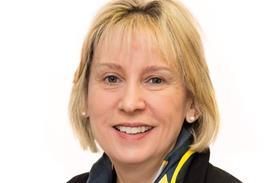The Institute of Chartered Accountants in England & Wales (ICAEW) today applied to regulate all reserved legal activities.
The representative body says it wants to promote more competition in the legal services market and build on the success of its existing probate regulation activity.
The ICAEW could become a licensing authority within 14 months for all reserved legal activities: conducting litigation, rights of audience, reserved instrument activities, notarial services and administration.
But the organisation has stressed it will restrict the activities it regulates to taxation, and is not seeking authority to accredit firms wishing to offer a wider range of services.
Vernon Soare (pictured), ICAEW executive director of professional standards, said the number of applications for authorisation and licensing for probate received during its first year as a regulator ‘far exceeded’ expectations. The ICAEW currently regulates 168 entities offering probate services.
‘Any further authorisation for legal services by ICAEW will be restricted to the service line of taxation,’ said Soare. ‘This is an obvious natural link for our members in traditional accountancy practices.
‘The ability of our members to expand their offerings to include legal services has already increased access for consumers, which is clearly in the public interest.’
The ICAEW has applied to the Legal Services Board for authorisation and has also started a three-month consultation with its members.
Research conducted by ICAEW shows the taxation work carried out by accountancy firms would be complemented by all the further reserved legal activities. For example, accountants currently represent clients before the tax tribunals of the General Regulatory Chamber (GRC) and provide expert litigation support to solicitors relating to both civil and criminal actions.
Debt-recovery cases brought by HM Revenue & Customs and complex winding-up proceedings would also be possible for ICAEW-regulated firms if the scope is extended.
As with probate, firms authorised or licensed for further reserved legal activities will be required to carry a minimum of £500,000 professional indemnity insurance per claim. A compensation fund will also be in place, although it has yet to receive a claim since it was set up more than a year ago.
The organisation says it has 146,000 members in more than 160 countries.
























25 Readers' comments